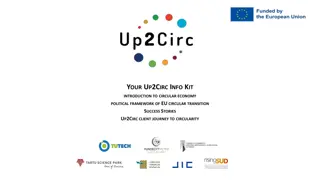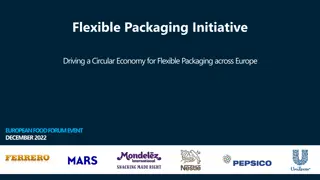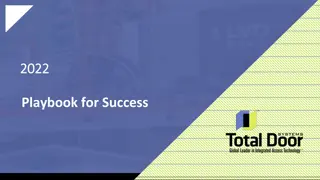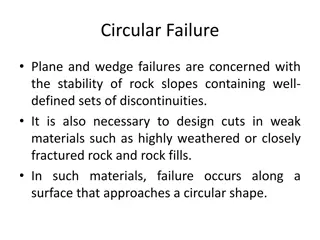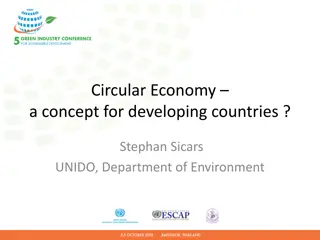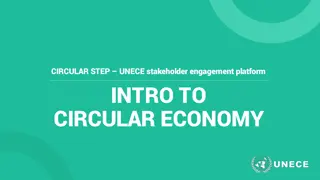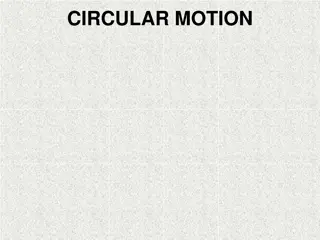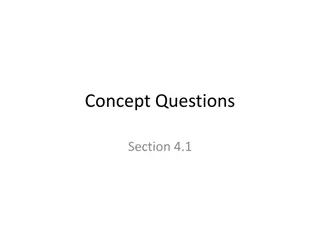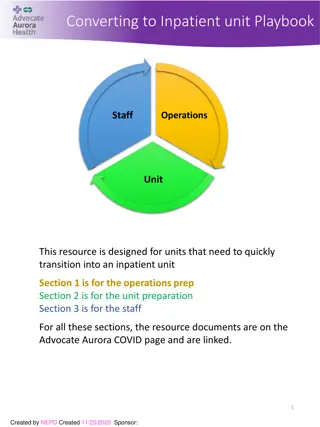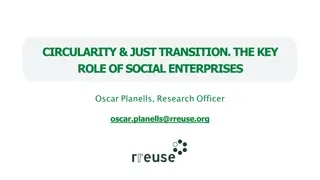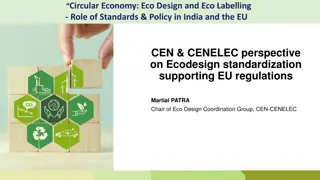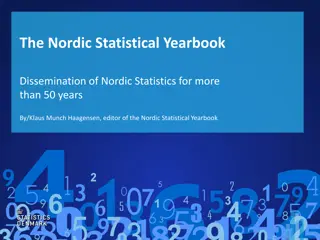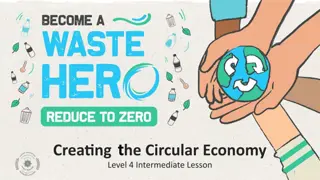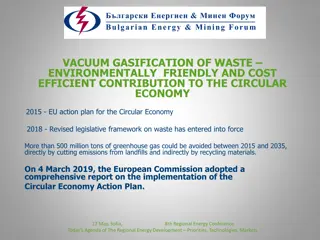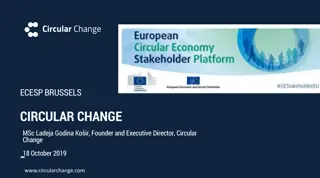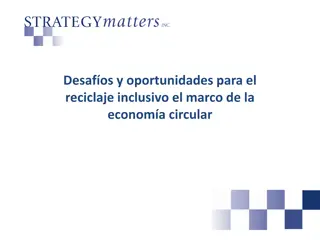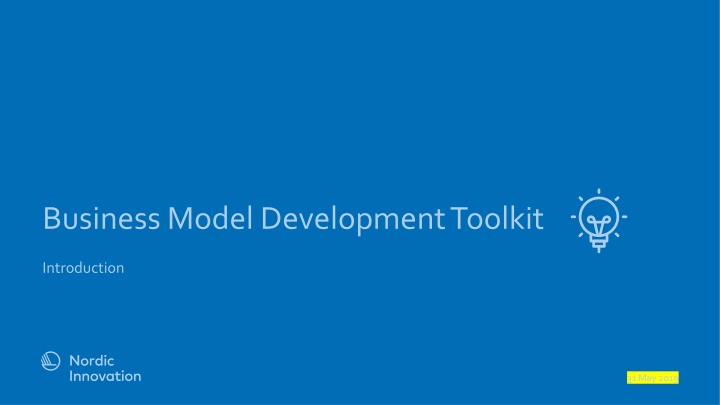
Circular Business Model Development Toolkit Introduction
The Circular Business Model Development Toolkit offers exercises to identify inefficiencies, customer pain points, and develop circular business models. Explore opportunities, prioritize ideas, and create value propositions for potential models.
Download Presentation

Please find below an Image/Link to download the presentation.
The content on the website is provided AS IS for your information and personal use only. It may not be sold, licensed, or shared on other websites without obtaining consent from the author. If you encounter any issues during the download, it is possible that the publisher has removed the file from their server.
You are allowed to download the files provided on this website for personal or commercial use, subject to the condition that they are used lawfully. All files are the property of their respective owners.
The content on the website is provided AS IS for your information and personal use only. It may not be sold, licensed, or shared on other websites without obtaining consent from the author.
E N D
Presentation Transcript
Business Model Development Toolkit Introduction 31 May 2019
Business model development toolkit Introduction The business model development toolkit consists of a set of exercises that support you in identifying inefficiencies and customer pain points, assessing relevance of circular business models, and prioritising them for development. Purpose Illustration of the tool By completing the exercises, you should have a high-level idea of the most promising circular business model(s) for your company. 1. Assess the current occurrence of the five inefficiencies of the linear model for your company (Exercise 2a) Reflect on your customers and think about their key pain points (Exercise 2b) Go through the circular business model sub-models, reflect on their current level of application in your company, and their potential (Reflection 3). List potential circular business opportunities based on the reflections you have made on the inefficiencies, customer pain points and circular business model potential, and concretize the value proposition and key value levers for top 3 opportunities (Exercise 3). Finally, select 1-2 opportunities to explore further and continue their evaluation with the value case tool and the business model canvas. 2. 3. Instructions 4. Chapter 1: Why circular economy? Chapter 2: What opportunities exist? Supporting materials 5. Inefficiency analysis Circular business models & sub-models Five inefficiencies in the linear model Illustrative playbook pages please refer to the entire chapter for support.
Business model development toolkit Tool Access the business model development toolkit by double-clicking on the icon below. Tool

